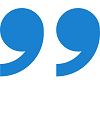Gender equality: bringing about change in cooperation projects
According to the World Economic Forum, it would now take 135.6 years to achieve parity worldwide. It is 36 years more than prior to the Covid-19 health crisis. Gender inequalities are deeply rooted in our societies. They can be seen in various sectors and are fuelled by many factors.
How can international cooperation provide concrete and sustainable solutions to this situation in order to progress towards gender equality?
Everyone’s concern
The first challenge lies in taking the gender issue into account in all cooperation projects in order to integrate the specific needs of women and promote their involvement in activities, while ensuring that the project does not exacerbate existing inequalities. “Everyone must feel concerned. For each project, we must make ourselves ask the question and look at what can be done to mainstream gender, whatever the theme we’re addressing”, explains Hervé Conan, Deputy Chief Executive Officer of Expertise France in charge of Operations.
 Look at what can be done, whatever the theme
Look at what can be done, whatever the theme
For example, taking gender into account in the fight against organised crime in Latin America is considered essential by 14 partner countries of the European EL PAcCTO programme. Similarly, in Chile, the Ministry of Women and Gender Equality and certain universities have called on the European EUROsociAL+ programme – which Expertise France is involved in – to help better integrate gender issues into the process to create the country’s future constitution.
Deconstructing stereotypes in cooperation projects
While it is essential to develop the legal framework and public policies, taking action for gender equality also requires actively fighting against stereotypes: “It is vital to fight against gender stereotypes which are all too often associated with femininity and it is equally essential to deconstruct what is meant by masculinity”, says Isabelle Guérin. The role of education is therefore crucial, but for it to be effective, special attention needs to be paid to the educational content to ensure it does not reproduce existing stereotypes.
In Burkina Faso, the “Boucle du Mouhoun, North and Sahel: Job-creating Territories” programme has taken action against stereotypes related to the choice of a professional sector of activity. “The objective of helping women pursue a career in these ‘male occupations’ led us to take measures, such as setting quotas when the people targeted by these projects are selected, but also bringing the training closer to the beneficiaries and giving women priority when the training material is given away”, explains Kadidia Ouattara, manager of this programme led by Expertise France with financing from Agence Française de Développement.
The challenge lies in creating models and generating a crowd effect that can inspire other women. To effectively empower them economically, it is also essential to “build the capacities of women and, beyond this, finance them”, explains Oulimata Sarr, Director of UN Women for West and Central Africa.
Supporting local stakeholders
“We feel it is essential to support civil society organisations, movements, women’s rights groups”, says the manager of the Support Fund for Innovative Gender Initiatives in the Sahel, Paule Elise Henry, “because they are the closest to communities”.
Financed by AFD, this Fund aims to promote innovative initiatives led by local civil society organisations to reduce gender inequalities, but also to build the capacities of the organisations financed and capitalise on their respective experience. “It involves helping, but also receiving: I think we have many lessons to learn from all these forms of fighting which show that other futures are possible and which can be a source of inspiration, including in our own societies”, says Isabelle Guérin.
 Lessons to be learnt from all these forms of fighting
Lessons to be learnt from all these forms of fighting
Listen to people in the field to bring about change
However, effectively fighting against gender inequalities also requires knowing how to contextualise and recognise any resistance that may arise, for example, to certain concepts or words used. “Each society sets its gender norms and certain societies consider that these norms are superior to those of the others”, says Isabelle Guérin, Research Director at IRD, emphasising the adverse effects and resistance this can cause.
 We need to be careful in the use of words
We need to be careful in the use of words
Consequently, the use of certain words and concepts can hamper the effectiveness of the project, for example, in the field of sexual and reproductive health. “We need to be careful in the use of words”, says Philippe Lacoste, a diplomat and Director of Sustainable Development at the French Ministry for Europe and Foreign Affairs. In certain countries, “If you speak about abortion, you are sure to have very strong reactions (…) whereas the use of the term ‘birth spacing’ doesn’t pose any particular problems”, he adds. “Technical expertise must be mobilised through a dialogue on equal terms, peer-to-peer (…) to create solutions together”, says Jérémie Pellet, Chief Executive Officer of Expertise France. In this respect, he gives the example of the EUROsociAL+ programme where the exchanges between Europe and Latin America are mutually beneficial.
 Technical expertise must be mobilised to create solutions together
Technical expertise must be mobilised to create solutions together
A good understanding of the context of the operation and knowledge of our own biases are therefore essential, along with the involvement of the whole of society. “In the Sahel, our partnerships are with everyone: traditional chiefs, religious leaders, because we know that to push boundaries and change social norms, we need the commitment of men”, says Oulimata Sarr.
Train development professionals
“Working on gender inequality requires a proactive approach, commitments and accountability”, says Hervé Conan. The agency’s Roadmap for Gender Equality for 2020-2022 reflects this need by adopting a systemic and systematic approach of gender. In addition, Expertise France has committed to ensure that 50% of new projects signed from now until 2022 include the reduction of gender inequalities, either as the main objective, or with a specific gender objective.
 A proactive approach, commitments, accountability
A proactive approach, commitments, accountability
“This requires developing tools”, says Jérémie Pellet. To meet this need, Expertise France is building the capacities of its teams at headquarters and in the field by developing appropriate tools. To this end, the agency is developing the “Gender and Development” MOOC for cooperation and development professionals, with the Ministry for Europe and Foreign Affairs and AFD. It will be available in September 2021.

